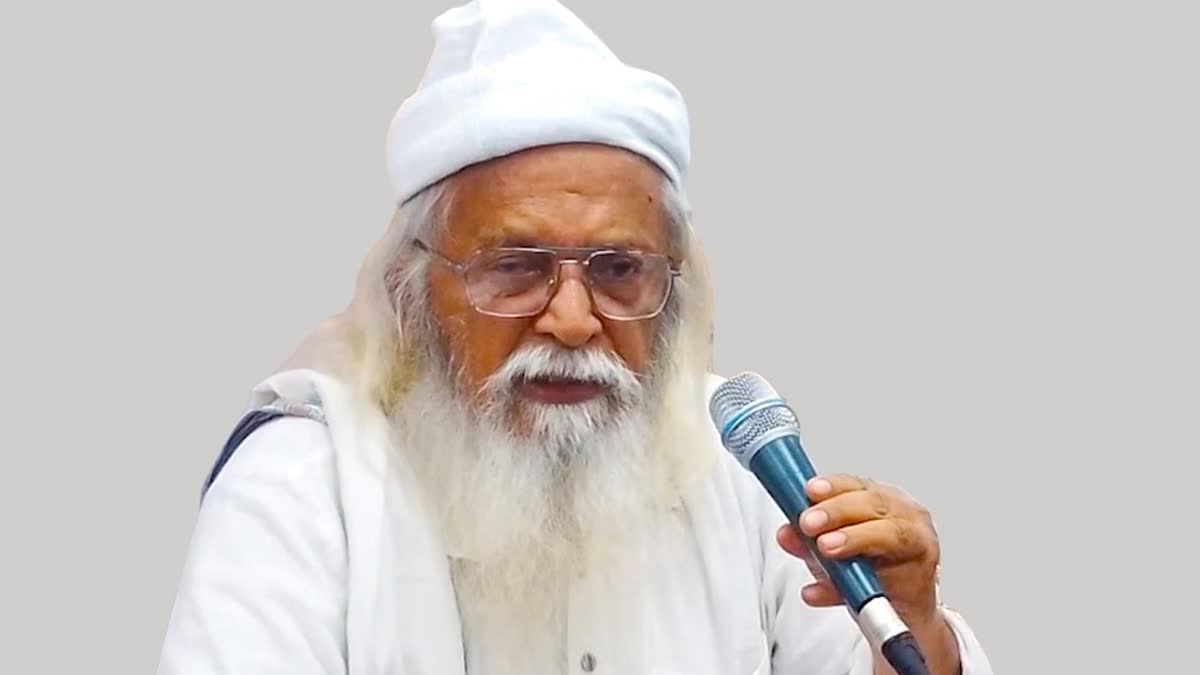Kolkata (West Bengal): Bangladesh finds itself in dire straits in the wake of Prime Minister Sheikh Hasina's ouster followed by the interim government headed by Nobel laureate Muhammad Yunus after over 300 people were killed in the deadly uprising.
Intellectuals in Bangladesh are divided in their opinions. One such literary luminary, 76-year-old Farhad Mazhar spoke to ETV Bharat after Hasina left the country. Bangladesh is gearing up to regain normalcy, which is still a far cry. However, Farhad Mazhar never sounded apologetic to Sheikh Hasina’s fate and strongly put his weight behind the students (read protesters) albeit with an iota of caution.
"The situation here is challenging, both for our country and the sub-continent as well. This is actually a mass uprising leading to a coup... The student leaders are asking some important questions which are in sync with the demands of the common people," Karl Marx-committed Bangladeshi intellectual Farhad Mazhar told ETV Bharat in an exclusive telephonic interaction days after disturbing scenes emerged from the other side of the fencing.
Farhad Mazhar, who made no bones in putting his weight behind the revolting students, also welcomed the younger generation's choice to have Nobel Laureate Muhammad Yunus at the helm in the absence of an elected government. "Yunus was offered such roles earlier too, but he has always refused. Now that he has accepted the students' offer…it is quite significant," the poet-cum-writer said.
On the violence that is currently taking place in the neighbourhood, Mazhar mentioned the students' zeal to build Bangladesh afresh. "This is a classic peoples' democratic revolutionary transition, so people want the smooth transfer of power to an interim government that will have the authority to draft a new constitution for Bangladesh, and must throw away the existing fascist constitution. It must be done by avoiding violence and deploying innovative politico-judicial processes," he said.
He admitted the fact that minorities in Bangladesh have been attacked in several places in a planned manner. "In the last few days we have seen the Hindus and the Sanatan Dharmis have been attacked plan-wise. The attackers are mainly from the Bangladesh Awami League party. I don't have proof, but I have heard that personnel of the Indian Army are also present here. By doing this, the focus is being shifted, but the people of Bangladesh are alert and will prevent any propaganda on religious disharmony. We don't have any Hindu or Muslim area as such, we all live together in harmony. I am perplexed with the kind of campaign that is going on globally," the social activist said without mincing his words.
However, Farhad Mazhar didn't want to blame students alone for vandalising the statue of Sheikh Mujibur Rahman or Bangabandhu (as he has been called all through) and the large-scale violence that shook the world.
"The regime had to go and there was a need to shake the rulers, but as far as vandalising the statue is concerned, who are doing this? Why are they being allowed to do so? Earlier the law and order was in the hands of police and now it is with the army. The army should have protected the statue and other establishments to avert a Sri Lanka-like situation. But sadly that happened."
He lobbed a few queries to the current Chief of Army Staff (CAS) Waker-uz-Zaman as to why he allowed Sheikh Hasina to flee the country. And then soon after she fled, why was the free-for-all allowed to take place?
Farhad Mazhar also raised a question about the Indian Army’s role in Bangladesh. “Why did the Indian Army present at the Gana Bhaban (Prime Minister's official residence) left the place suddenly? "Why was the loot and violence allowed there? Is it just to prove that there's none to govern Bangladesh? This may be done purposely to malign Bangladesh internationally. I am not aware whether Delhi 'wished' this," the poet sounded disturbed.
However, he believes that the current scenario in Bangladesh won't have any telling effect on its relationship with India, and in particular Bengal. "This will not impact our relationship. Now, Delhi will have to think about bettering the bilateral relations. They have to think about how to use BSF along the barbed wire. In fact, the relationship can get even better with more trade and cultural exchanges," the septuagenarian hoped.
Last but not least, Farhad Mazhar has a message for the Bengalis living on this side of the barbed wires. "Bangladesh is not only the land of Taslima Nasrin. I want peace and love to prevail between Bengal and Bangladeshis. The Bengali language and culture have a lot of similarities but with different styles. We both should reciprocate respect and that's how it should be," the cultural icon rounded off.



